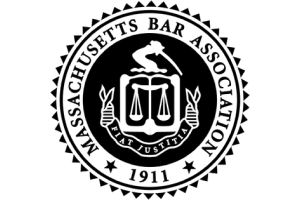Defense Lawyer
Massachusetts Clerk Magistrate’s Hearings
Clerk Magistrate Hearings in the Massachusetts District Court or Boston Municipal Court.
“A Clerk Magistrate’s Hearing on a Complaint Application in the Massachusetts Trial Court: Notice to Appear.”
See Serpa Law Office’s criminal client reviews and case results HERE.
Criminal cases in the Massachusetts District Court or Boston Municipal Court (“BMC”) often begin with a notice to appear for a clerk magistrate’s hearing. In Massachusetts courts, these can also be called Massachusetts clerk’s hearings or show cause hearings.
Clerk magistrate’s hearings are important. They are private proceedings designed to determine whether you should be formally charged with a crime in the Massachusetts Trial Court.
Boston’s Serpa Law Office has deep experience in resolving cases and has had hundreds if not thousands of cases dismissed before a criminal record is generated at this critical stage in a Massachusetts criminal case.
Your Massachusetts local or State Police can begin Massachusetts criminal cases in three ways after an investigation.
- First, the accused person can be arrested and brought directly to court for an arraignment. (A Massachusetts arraignment is the formal beginning of a public criminal case and also the moment when a criminal record of the case is created.)
- Second, the person accused can receive a notice to appear for arraignment in the Massachusetts District Court or BMC by mail.
- Third, the person can receive a notice to appear for a clerk magistrate’s hearing in the Massachusetts District Court of BMC. This is a private, preliminary hearing that occurs before arraignment designed to determine whether a formal criminal complaint, and with it a Massachusetts criminal record
If you receive a notice to appear for a “magistrate’s hearing on a complaint application,” also known as a Massachusetts show cause hearing or a clerk’s hearing, you should take advantage of this very powerful opportunity to prevent a criminal case from ever appearing on your Massachusetts criminal record or “CORI.” A dedicated criminal defense attorney can assist you in stopping your Massachusetts criminal case before it becomes public. Read below for advice on how to respond to your notice to appear for a clerk magistrate hearing in Massachusetts.
How Are Massachusetts Clerk Magistrate Hearings Scheduled?
Clerk magistrate hearings begin with a written request by a police officer. The request is called an application for a criminal complaint. When a court receives the request, the court will schedule the show cause hearing in the Massachusetts District Court or Boston Municipal Court. In these cases, you will receive a notice to appear for the hearing by mail, again instead of being arrested or going to directly to arraignment.
What Happens at a Massachusetts Clerk’s Hearing?
Clerk’s hearings are private. They are your opportunity to stop the complaint and have the court dismiss your case before you are formally charged in district court at an arraignment. If you win at a clerk’s hearing, there will never be a record of this criminal accusation on your criminal history.
You have this opportunity to dismiss your case privately whether your accuser is a police officer or a civilian. Therefore. if you receive a Massachusetts application for a criminal complaint and a notice to appear for a clerk’s hearing, you have an opportunity to have the clerk dismiss your case before an arraignment and a public case in the Trial Court.
The dilemma is that the statements you make at clerk’s hearing can be used against you. This is why you should always have an criminal defense attorney with you at a Massachusetts clerk’s hearing.
Clerk’s hearings are less formal than hearings before judges in the district court, but they are still serious proceedings that require an experienced attorney. Your hearing will occur in a conference room at the District Court or Boston Municipal Court. A police officer, usually a “police prosecutor,” will represent the police department. They will read the accusing police report and provide any other evidence they believe is important. You will appear ideally with a criminal defense lawyer. A magistrate will decide whether your complaint should go forward or end at this private stage.
You have many rights at a Massachusetts clerk magistrate’s hearing. You can present evidence in your defense. You can review the evidence alleged against you and respond to it. You may also cross-examine the witnesses against you to stop the case from going forward. This is a critical opportunity to prevent your criminal case from ever making its way into court. Clerk’s hearings are also an opportunity for a skilled lawyer to negotiate with the police or your accuser to stop a criminal case before it begins.
The Massachusetts clerk magistrate has many options in deciding your application for a criminal complaint. They may find that there is not enough evidence and dismiss the application with no formal complaint going forward and no criminal record. They may find that there is enough evidence, but still decide not to issue the complaint against you. They may decide to take no action and hold the case privately for a period of time on your promise to have no more criminal trouble. In this scenario, the application will be permanently destroyed at the end of that time period. Finally, a clerk magistrate may find that the evidence is enough to formally charge you and issue a criminal complaint. You will then receive a second notice for a Massachusetts arraignment.
Serpa Law Office’s Boston criminal defense attorney’s office will prepare and investigate your case before appearing at your clerk’s hearing. We will arrange for the testimony of any witnesses that can assist in your defense, and attempt to contact the accusing party to arrive at some resolution or to better understand the accusation.
Contact us at our Boston or Quincy offices for criminal defense If you have any questions about a pending or possible Massachusetts clerk’s hearing at 617.936.0201.
Arrests, Arraignments and Clerk’s Hearings: Massachusetts Rules
Notice to Appear by Mail vs. Arrest
Massachusetts State and local police investigations in Massachusetts ultimately include a police decision whether to charge a person with a criminal offense. When the decision is to begin a criminal case, police choose one of the three methods of beginning a Massachusetts criminal case described above.
Here is what you can expect in a little more detail.
Notice by Mail: If you are not arrested, the Massachusetts Trial Court will mail you a notice to appear either to a clerk magistrate’s hearing or a notice to appear for arraignment. It is important to attend your clerk magistrate’s hearing because it is an opportunity to keep your criminal case permanently private.
Massachusetts criminal laws require an opportunity for you to have a clerk magistrate’s hearing for most misdemeanors. Massachusetts criminal laws make clerk magistrate’s hearings the option of the accusing police department for all felonies and a few specific misdemeanors.
Again, for most Massachusetts misdemeanors, clerk magistrate’s hearings are your mandatory right. Most Massachusetts misdemeanors require that the police officer begin your case with a notice to appear for a clerk magistrate’s hearing.
Common exceptions are domestic violence accusations, including 209A restraining oder violations, and drunk driving offenses in which you are stopped by police (“OUI”). In these cases, the police may either arrest you or begin your case with a notice to appear either for arraignment or for a Massachusetts clerk magistrate’s hearing. A police officer also may arrest you for a misdeamor that the officer witnessed first hand.
For Massachusetts motor vehicle offenses, the procedure is a little different. Your Uniform Motor Vehicle Citation, or “ticket,” is also your ticket to a clerk magistrate’s hearing. Here, however, it is your responsibility to deliver the citation to the local district court within FOUR DAYS of receiving the ticket for a criminal motor vehicle offense such as leaving the scene of an accident or reckless operation of a motor vehicle. For an explanation of this process, please see our page HERE.
Clerk’s hearings can also be available for complaints of felonies in the district or municipal court. A police officer may, if she chooses, apply for a clerk’s hearing of a felony application for a criminal complaint. If the officer chooses to notify you this way rather than arrest you, the court must hold a clerk magistrate’s hearing before a felony criminal complaint can begin against you.
(In the Massachusetts Superior Court, the procedure can be different. These cases may also begin in the district court and later be transferred to the Superior Court. They may also begin with a Grand Jury indictment directly in the Superior Court. We discuss the indictment process here.)
Civilians, people who are not police officers, may also ask the court to charge you with a crime. You will not be arrested cases where civilians apply for criminal complaints. Instead, you will receive a notice to appear for a clerk’s hearing in a Massachusetts district court if the court accepts the civilian application for a criminal complaint.
Arrest: If you are arrested, you must be brought to court for an arraignment within 24 hours (weekends excluded). A police officer can arrest you only under three limited circumstances. Arrests can occur for any felony charges. Arrests can also occur if a police officer witnesses an alleged misdemeanor involving a “breach of the peace” or certain driving or domestic violence offenses. Finally, a police officer can also arrest you if there is an arrest warrant.
You may not be arrested for any other misdemeanor offense. In felony cases, a police officer can also choose not to arrest you and instead to give you notice to appear for a clerk’s hearing in a felony accusation. The officer can also elect to skip the clerk magistrate hearing and schedule your case for an arraignment. The court will send you a notice by mail to appear in either case. For the difference between a felony and a misdemeanor in Massachusetts, see our explanation here.
Again, a police officer cannot arrest you for a misdemeanor that the officer did not witness firsthand, with a few exceptions. The most common exceptions are some driving offenses and domestic violence offenses. You can be arrested for drunk driving, (“OUI” or Operating Under the Influence in Massachusetts) and for reckless operation where there was serious bodily injury, for example. Also, certain specific criminal laws in Massachusetts allow arrests for misdemeanor offenses committed outside of the officer’s presence. Massachusetts General Laws allows a police officer to arrest you for several domestic violence misdemeanors committed outside of the officer’s presence or for offenses involving a 209A abuse prevention order violation, more commonly known as a restraining order violation.











